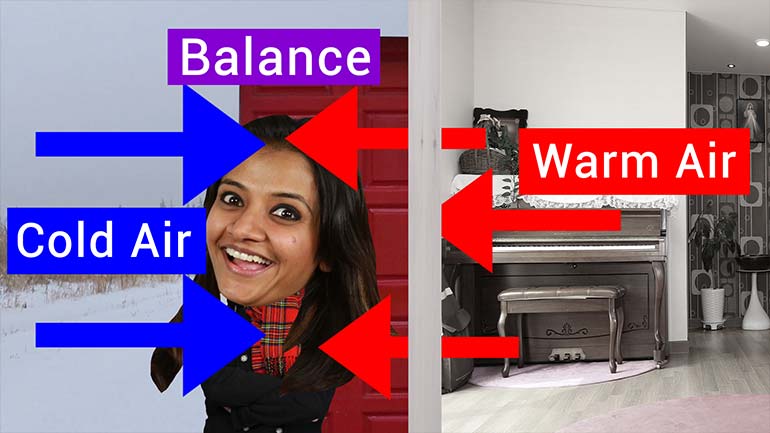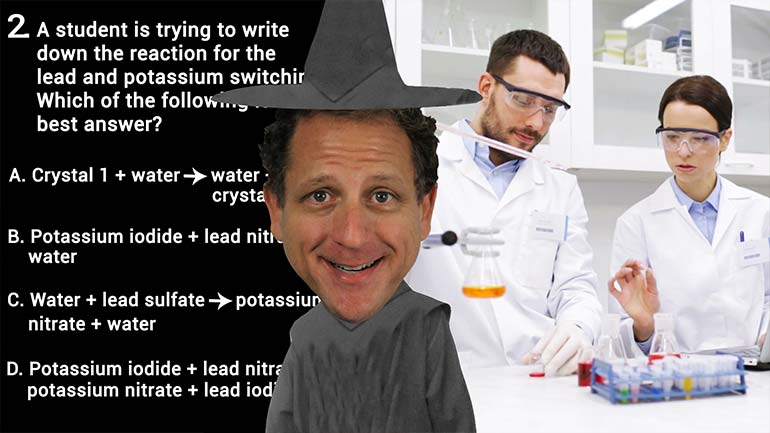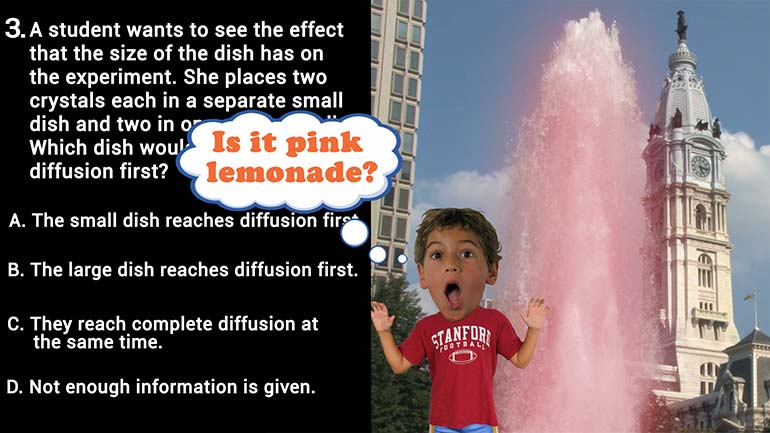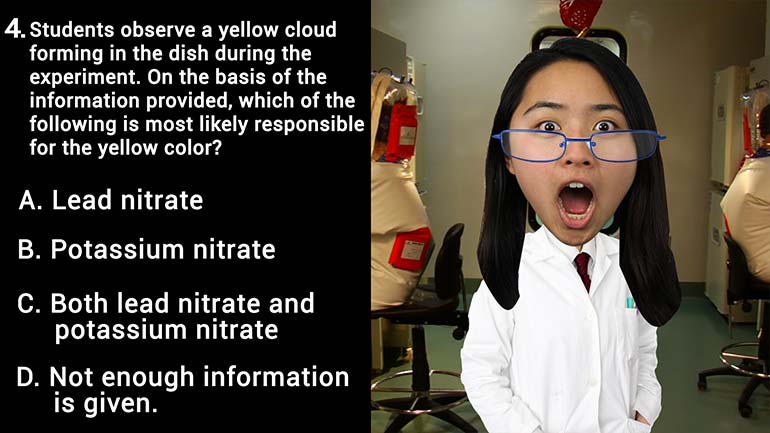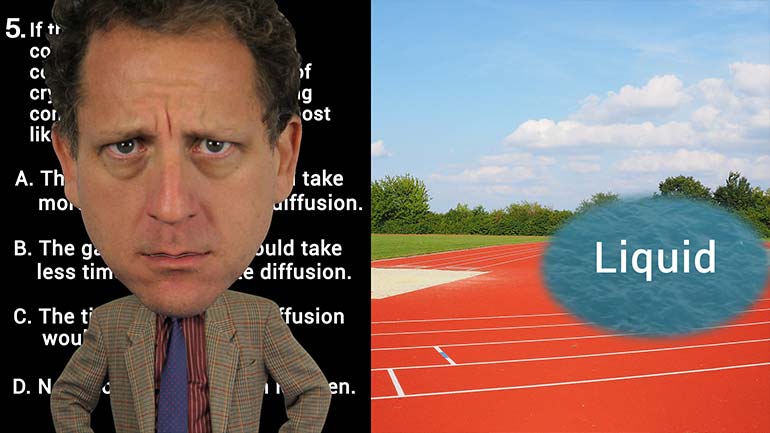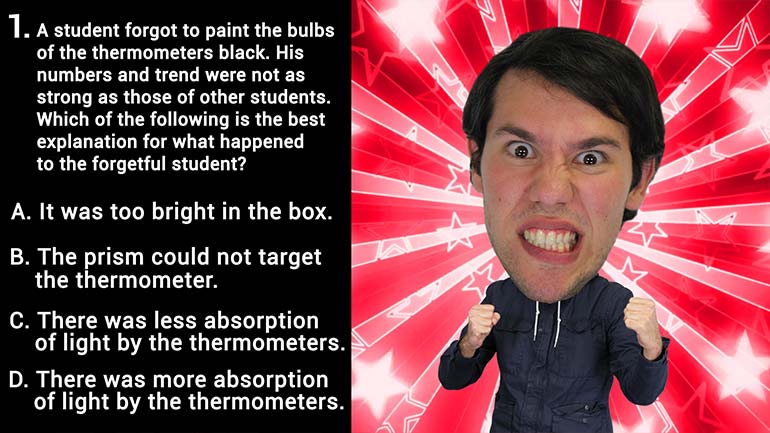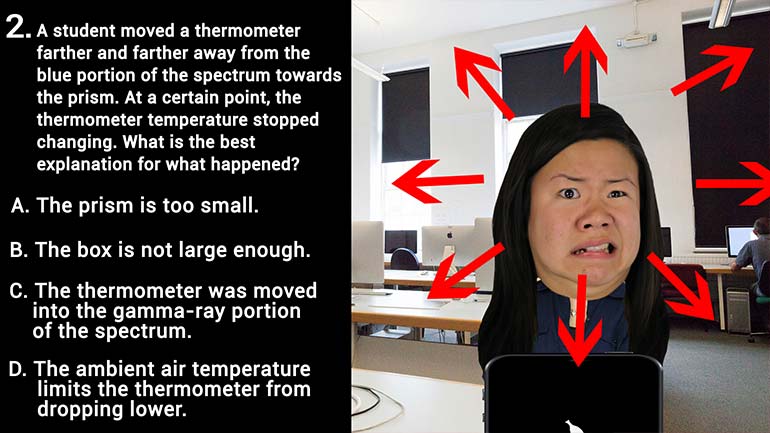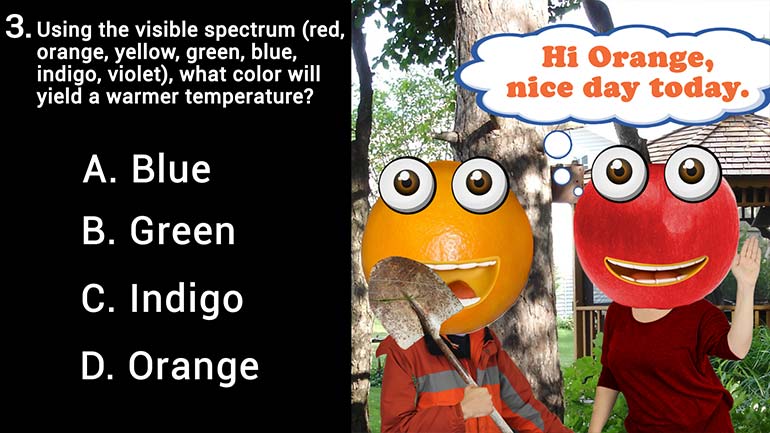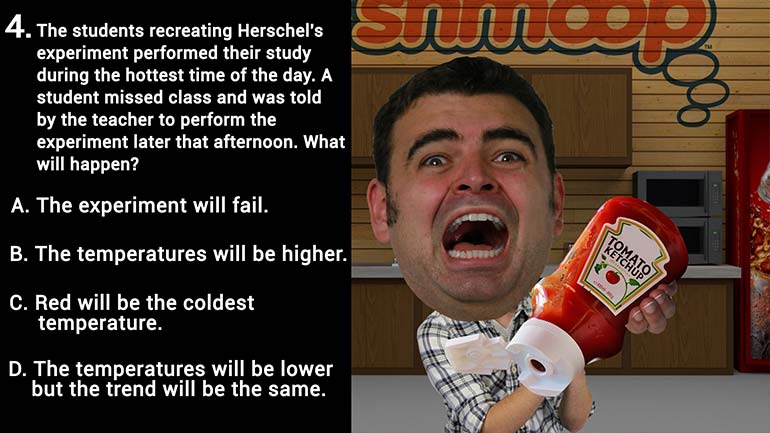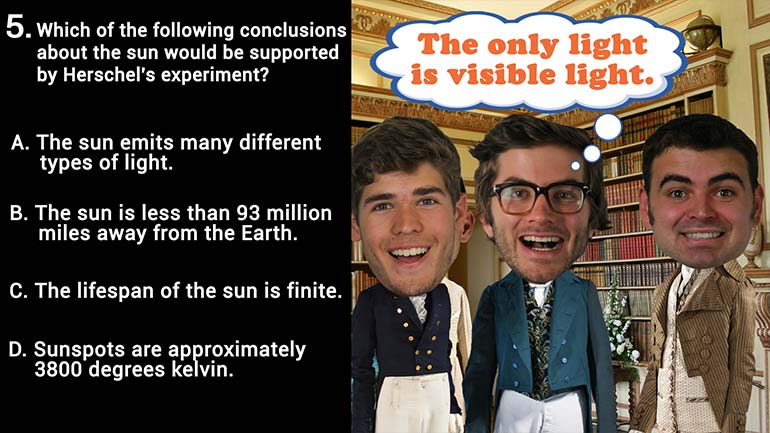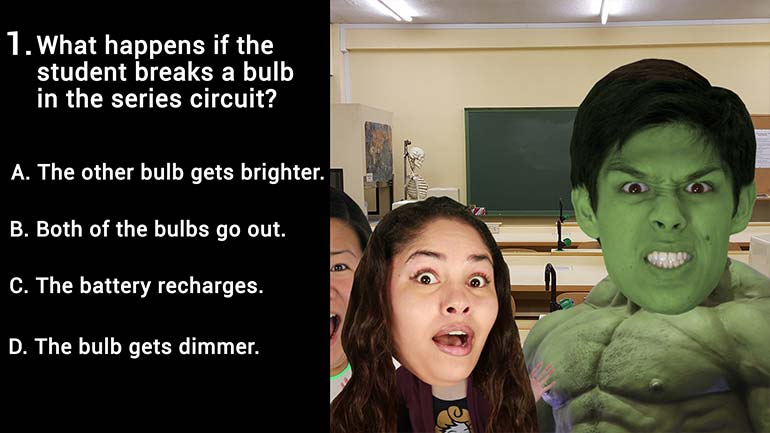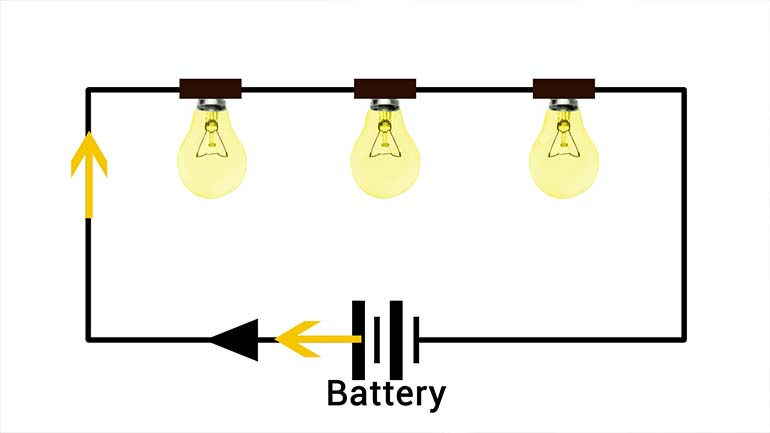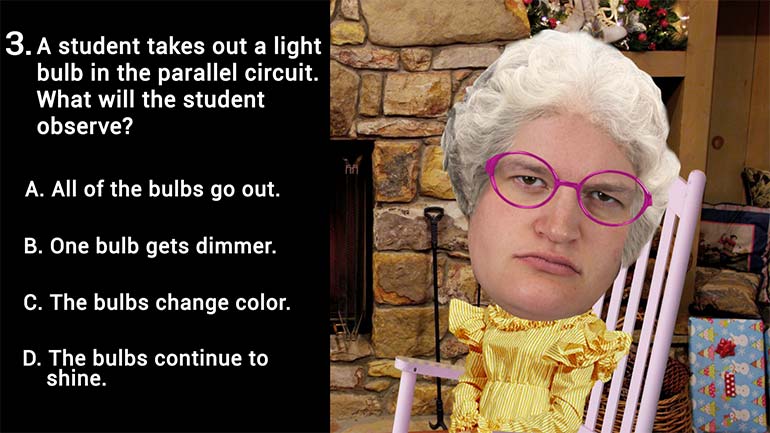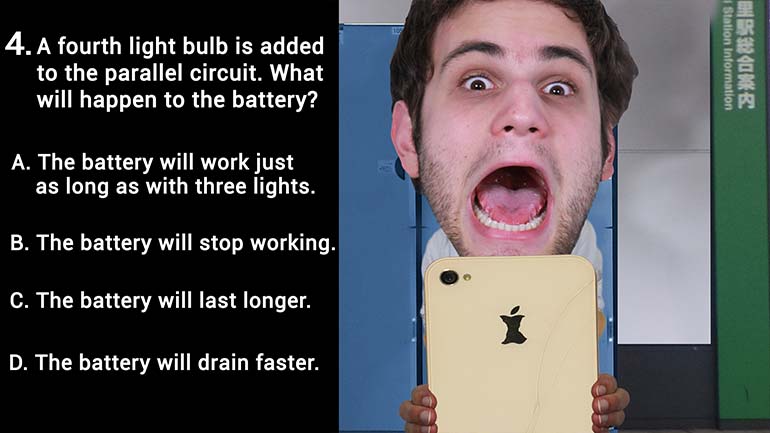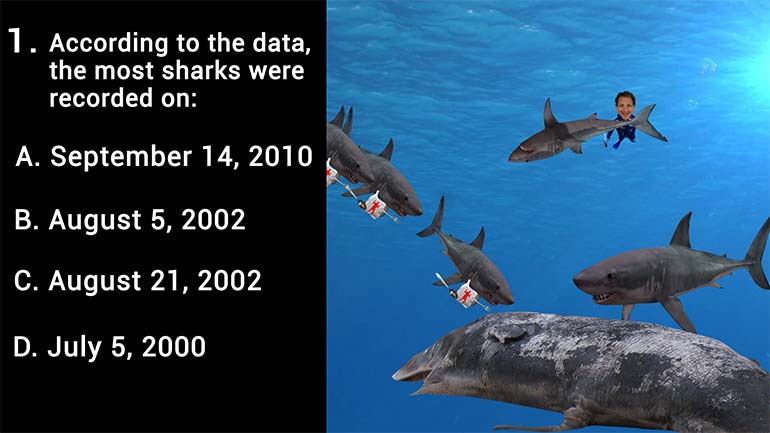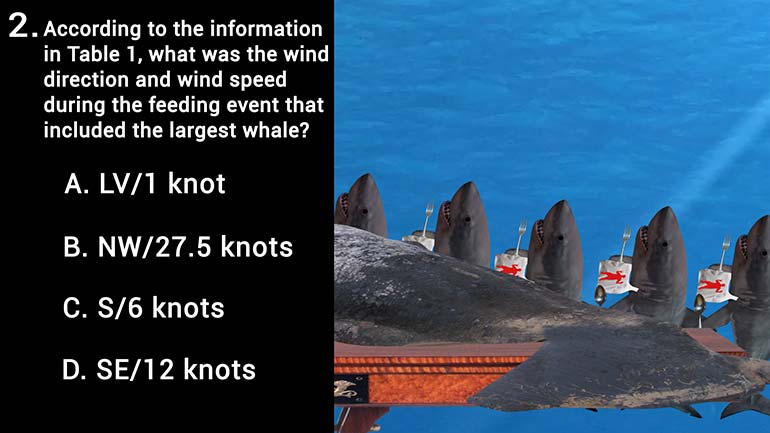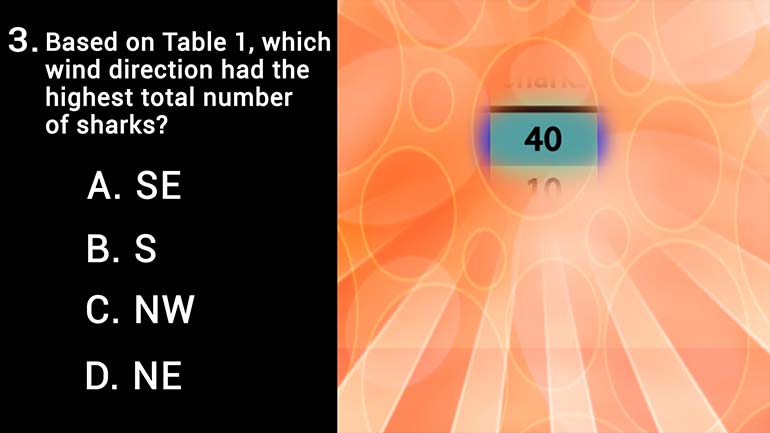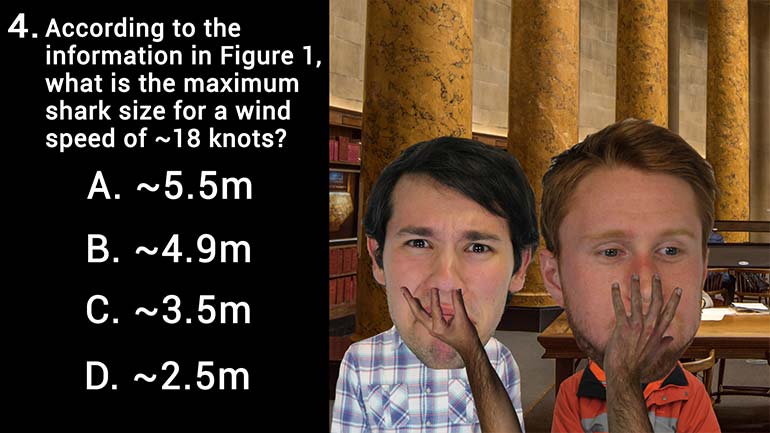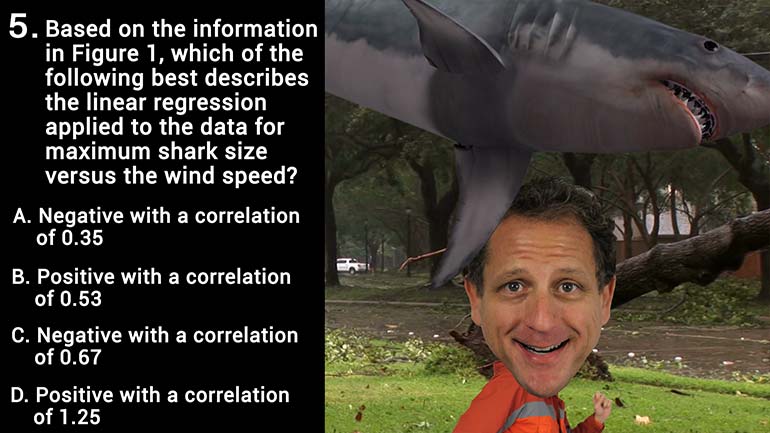ShmoopTube
Where Monty Python meets your 10th grade teacher.
Search Thousands of Shmoop Videos
Research Summaries Videos 15 videos
A student places the two crystals in cold water. Will the reaction take place faster or slower than if the student had used warm water?
A student is trying to write down the reaction for the lead and potassium switching. Which of the following is the best answer?
A student wants to see the effect that the size of the dish has on the experiment. She places two crystals each in a separate small dish and two in...
ACT Aspire Science: Crystal Diffusion 0 Views
Share It!
Description:
A student places the two crystals in cold water. Will the reaction take place faster or slower than if the student had used warm water?
Transcript
- 00:00
Yeah Oh okay Aspiring people More weird signs for you
- 00:07
Here we go Here's the frame when walking into a
- 00:10
warm building from the cold outside you're greeted with a
- 00:13
blast of warm air No that's soothing Warm air was
- 00:16
acting to balance with the cold air outside Well this
Full Transcript
- 00:20
is one of the universe's irreversible process is across the
- 00:25
universe Things are becoming more and more disordered That means
- 00:29
that over time the variations in the physical properties of
- 00:32
the universe such as temperature pressure and chemistry are moving
- 00:35
towards a state of balance Well the intermingling of the
- 00:39
warm and cold air in the example above is a
- 00:42
type of diffusion Yeah that's what diffusion is Well students
- 00:46
are tasked with carrying out a series of experiments involving
- 00:50
diffusion in liquids they're given to different white crystals One
- 00:54
made up of lead nitrate That's P b n o
- 00:57
three there and one made up of potassium iodide K
- 01:00
I Well the students placed the crystals in a dish
- 01:03
filled with water A reaction occurs that causes the lead
- 01:06
and the potassium to switch places Yeah like that movie
- 01:10
with those earning that orange haired girl All right well
- 01:14
let atoms are more massive than potassium Adams and move
- 01:17
more slowly at the same temperature You have a hot
- 01:20
in the water The faster the crystals dissolve and the
- 01:23
faster the reaction larger the volume all the longer it
- 01:26
takes to complete diffusion Okay moving on a student places
- 01:31
the two crystals in cold water Will the reaction take
- 01:35
place faster or slower than if the student had used
- 01:39
warm water Faster or slower Cold water well We've been
- 01:45
placing a French book under our pillows at night in
- 01:48
hopes that we'll learn through osmosis But no it ain't
- 01:51
working Salon Marche pas certain friends Well maybe we need
- 01:56
to learn something about the process of diffusion first Well
- 01:59
the description above says that the hotter the water the
- 02:02
faster the crystals dissolved and the faster the reaction Yeah
- 02:07
Then they dissolved his reaction So we can infer that
- 02:09
cold water the opposite will slow down the rate at
- 02:13
which the reaction takes place Duck Our reactions are slower
- 02:17
when it's cold too But that may be from all
- 02:20
the layers of clothing we have on Yeah so the
- 02:23
answer to our French problem might be a heated waterbed
- 02:27
about that All right now Well for this problem the
- 02:29
answer just be slower and we're clearly getting that way 00:02:33.74 --> [endTime] in our old age
Related Videos
According to the data, the most sharks were recorded on:
According to the information in Table 1, what was the wind direction and wind speed during the feeding event that included the largest whale?
Based on Table 1, which wind direction had the highest total number of sharks?
According to the information in Figure 1, what is the maximum shark size for a wind speed of ~18 knots?
Based on the information in Figure 1, which of the following best describes the linear regression applied to the data for maximum shark size versus...
